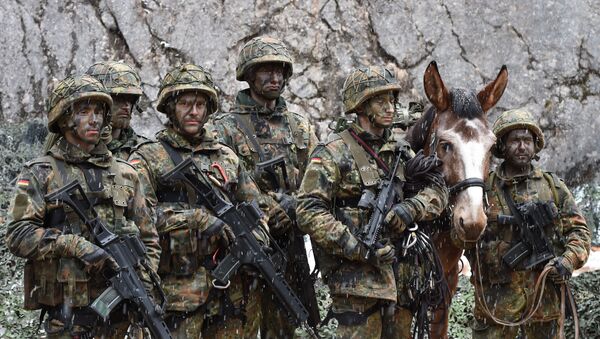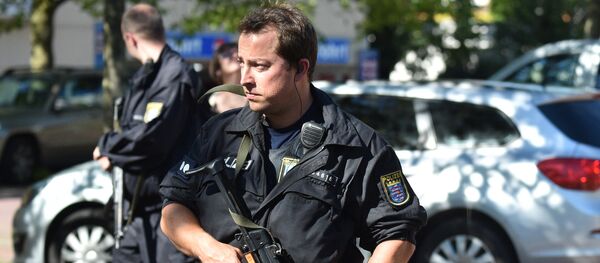The idea of using of Germany's Armed Forces in the country has long been very controversial, Deutsche Welle wrote.
"Residents of many other countries, who got used to seeing soldiers and military vehicles on the streets of their cities might perceive the German discussion on this topic as strange and out of place. But among many in Germany — with its Nazi past and the role of the Wehrmacht under Hitler's regime — the idea of using the army in the country causes severe allergy," the media source wrote.
The newly proposed military training has divided the German political landscape. For instance, German Minister of Foreign Affairs Frank-Walter Steinmeier strongly opposes the step and recalls that the authors of the German constitution have embedded a corresponding paragraph (prohibiting the use of the armed forces within the country) not without reason.
In an interview with German newspaper Passauer Neue Presse, he praised the professionalism of the police during the events of last week and said that "there were no gaps that could or should have been filled by the Bundeswehr." The idea of using the army in the country is also being negatively assessed by the Left Party and "Union 90" / "Green".
It is worth mentioning that the current version of the German constitution still allows the use the military within the country in some exceptional cases. According to Article 35, local authorities can ask for the help of the army "to assist in the event of a disaster or a particularly severe accident," which had repeatedly happened during floods when soldiers were involved in building dams and evacuating residents.
Another article of the constitution (87-a) allows the use of the army to assist the police "in protecting civilian property and combating organized and located militant armed groups" when it is necessary "to reflect the danger that threatens the existence or the free democratic basic order" in the country.
In 2012, the German Constitutional Court ruled that the terrorist attack, in principle, can be classified as "a particularly severe accident" which may potentially involve the army, but did not specify what the scale of the attack should be to classify it as such.
The debate over the use of armed forces within the country intensified following a series of attacks that took place in Germany over the last two weeks.
The same day, another Syrian refugee killed a female colleague with a machete in the city of Reutlingen.
On July 22, 9 people were killed in Munich during mall shooting carried out by a German of Iranian origin. On the same day, an axe attack was carried out by an Afghan refugee, which injured five people.





